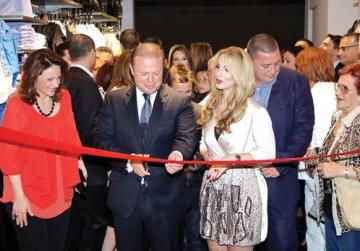
In that post I explained how the value of two adjoining sites in Mrieħel’s ‘The Hub’ shot up by 700% in one year. The sites were granted for 65 years to the Dizz Group by the Government Property Division in May 2016 when Joseph Muscat was prime minister. The price was €0.5 million plus an annual ground rent of €18,000 revisable every 5 years. These plots were gradually revalued to €6.3 million up to 31 December 2021.
This means that the Group owned by Diane Izzo and her spouse Karl Izzo, ambassador to Montenegro, and intimate friends of the Muscats, were given an opportunity by Joseph Muscat’s government to make a mammoth unrealised profit of €5.8 million over a period of 5 years on a still undeveloped site, while at the same time making an accumulated operational loss of €7.2 million on the whole group of companies.
During the year, the Group received €1 million as a Covid Malta Enterprise Wage Supplement.
The accumulated loss of the Group on 31 December 2021, amounts to €7.2 million, whereas its share capital held by Diane Izzo and Karl Izzo, amounts to €7.7 million. This shows that the company is operating on the margin and may soon need to have recourse to additional credit facilities to maintain its going concern.
The problem is that the Group needs to start building up reserves, like a sinking fund, to cater for the maturity on a staggered basis, of its bonds amounting to €18.2 million due in 2026, 2028, and 2030. This can only be achieved if the Group starts moving towards a profitable situation, which, at this stage, does not seem to be very likely. Otherwise, the Group will have to consider rolling over its matured bonds, but again, this depends on investors’ perception of the group. There seems to be low appetite for the bonds issued by Dizz.
Observations
- The total revenue for the year increased to €18.2 million from €12.9 million in the previous year, and this despite the negative implications of COVID during the first six-months of the year.
- Despite the decrease in sales in the first six months, the company generated a gross profit of 43%, as compared to 20% in 2020. The reason for such an increase is not given in detail, except that reference is made to the lifting of Covid restrictions. In my opinion, the reason would be in either increasing selling prices of current stock, much beyond the norm to recover the losses, or buying new stocks at substantially reduced prices and still overpricing them, particularly because stock process would be changing from Summer to Autumn/Winter, and the franchisors would want to get rid of their stocks.
- Despite this increase in the gross profit percentage, the company still made an overall loss for the year of €2 million as against a loss of €4.3 million in 2020.
- It may be pertinent to highlight that the accumulated losses to 31 December 2021, amount to €7.1 million, which practically wipe out the Group’s Issued Capital of €7.7 million.
- The Dizz Group of Companies is involved in the sale of fashion-related items and food and beverages and operates the key brands Max & Co, Elisabetta Franchi, Liu Jo, Boggi, Guess, Paul & Shark, Harmont & Blaine, Terranova, Calliope, Philip Plein, Michael Kors, Versace, Chiara Ferragni, DSquared, Moschino, Pinko, Aqua Azzurra, Nespresso, Caffe’ Pascucci, Salad Box and Pastrocchio.The Group is also involved in acquiring and or leasing property to companies within the Group or to third parties. It operates 21 outlets, of which 9 are at Tigné Point Mall.
- It has 13 fully owned subsidiaries, Dizz Finance plc, D Foods Finance plc, Dizz Manufacturing, DK G, D Shopping Malls, Dizz Retail, D Foods Finance plc, DK Pascucci, D Kitchen Lab, D Caffe, DK Fashion, DKV & Co and Dizz Limited.
- The Principal Risks and Uncertainties, highlighted in the directors’ report, are that the food and beverage industry as well as the retail industry are marked by strong and increasing competition and many of the Group’s current and potential competitors may have longer operating histories, bigger name recognition, larger customer bases and greater financial resources than the companies within the Group. Thus, the principal risks faced by the Group are loss of market share because of other participants entering the market, obsolescence of inventories and negative developments in the economic environment, including the pandemic. Additionally, the Group is directly exposed to the risks associated with the local property market. The Group will continue to monitor developments in sales, customer preferences and the market in general, with the aim of returning the Group to sustainable profitability.
- One must question the business model adopted by the Group, in having many outlets both for the fashion clothing sector, and the food sector.
- It must be emphasised that the Group operates in what is considered as a High-Risk sectoral market for potential money laundering, in view of the predominant cash transactions, the multiplicity of outlets, and the inherent factors in the retail/food catering trade.